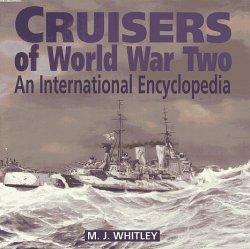It is during the reign of the last of the Julio-Claudians, Nero, that there is again a notable explosion of literature, due in no small measure to the encouragement and support of this young philhellenic emperor who fancied himself an artist, poet, and performer. The emperor too is directly responsible for the premature and tragic ends of the major writers of this period, Petronius, Seneca, and Lucan, all forced to commit suicide in 65-66 ce after being associated with a failed conspiracy to overthrow the emperor. As poets and emperors become closer, so poetry becomes a more dangerous enterprise. Politically-committed high poetry, such as that of Vergil and Horace, is no longer prevalent. Lucan, the one poet to write an historical epic in this period, although not on contemporary history, seems to have suffered imperial disfavor through his choice of topic. Nero himself had a predilection for epic on Trojan themes. Under Nero’s campaign of artistic promotion, public competitions on the Greek model were established, furthering the expectations of literature as spectacle.
Upon his arrival at Rome the young poet Lucan (39-65 ce), from a well-connected family from Spain that included his uncle Seneca, rose meteorically to became a member of the emperor Nero’s circle of friends, gaining literary fame for tragedy, occasional verse, and other compositions, as well as an early quaestorship. His fall from favor was just as abrupt. He was forced to commit suicide at age 26 in 65 ce, after being suspected of participating in the Pisonian conspiracy to overthrow the emperor. Nero had evidently before this event taken umbrage with Lucan and ended his political and poetical careers, banning his public performances. Although the versions of the rupture differ in the ancient biographies and among modern scholars, some offer the suggestion that Nero may have forbidden Lucan to publish or recite out of artistic jealousy, while others suggest that the republicanism of Lucan’s loyalties expressed in the epic he was composing must have offended the emperor (perhaps only the first three books). His epic Bellum Ciuile (Civil war or Pharsalia), which survived underground (91/2 books, unfinished), is an account of the combat between Caesar and Pompey for supremacy in Rome and their final battle in Thessaly at Pharsalus in 49-8 bce. This was a minefield of a topic, as we saw in the case of Cremutius Cordus, and Lucan must have been aware of its hazardous nature. Horace had warned Asinius Pollio of the danger of writing on the civil war of 49 bce in Odes 2.1, telling him ‘‘you are walking, as it were, over still smoldering ashes.’’ In Tacitus’ Dialogue Concerning Orators, with a dramatic date of 75 ce (Vespasian’s reign), Curatius Maternus is clearly depicted as courting ruin with his tragedy entitled Cato. Later, a number of writers of biographies of Cato the Younger, who committed suicide after the defeat of the republicans rather than submit to the tyranny of Caesar, were punished by Domitian. Lucan’s epic is overtly political and rebellious in form and content and constitutes a strong denunciation of Caesar and his successors. Yet at the beginning of the epic (33-45) Lucan inserted fulsome praise of Nero, anticipating his apotheosis and proclaiming him his muse. This dedication has caused commentators ancient and modern acute difficulties when considered in relation to the rest of the poem (for different views on interpreting imperial panegyric, see Dewar 1994; Ahl 1984). Even ancient scholars detected irony in Lucan’s expressed concern about the divinized Nero’s weight tipping the balance of the heavenly sphere. More disturbingly ironic are his claims that the horrifying Roman bloodshed was a worthy price to pay for the coming of Nero, when the poem relentlessly condemns imperial power and the violence and moral turpitude of civil war. At 7.640-1 Lucan claims that at Pharsalus, ‘‘we were overthrown for all time to come; all future generations doomed to slavery were conquered by those swords.’’ The poem is an indictment of both sides and the two leaders’ desire for sole power, but Cato stands out as a moral exemplar. Lucan’s epic is also in revolt against the predominant features of Vergil, namely in its omission of the traditional divine machinery of the gods. The removal of divine explanation further underlines the utter despair and incomprehension at the random victory of the wrong side (Feeney 1991: 279). In a world where values have been undermined, Lucan claims, ‘‘unspeakable crime shall be called heroism’’ (1.667-8).
A work of a new type appears at this time in Petronius’ Satyricon, an innovative work of fiction written in a combination of prose and verse. This remarkable hybrid literary form has precedents in earlier Latin literary forms, but is in many ways unique and extremely difficult to interpret. Petronius (d. 66 ce) too was a member of Nero’s court, consul in 65 ce and later master of court entertainment. He too died a suicide by the command of Nero. The work demonstrates above all the intense literariness of Nero’s age and court, encompassing almost all genres and engaging in parody and critique of contemporary literature and literary criticism. All we have remaining of what we call the first Roman novel are excerpts and fragments, in all, the remnants of four to six books out of more than 16. A recent scholar translates its title as ‘‘A Tale of Satyr-like Lust and Depravity’’ (Courtney 2001). A first-person narrator, Encolpius, narrates his farcical misadventures, mostly of a sexual nature. These adventures seem to follow patterns suggesting epic parody (pursuit by an angry deity [Priapus], storms at sea, a visit to the Underworld). Others suggest that many of the topoi of the developing Greek novel tradition may be spoofed, especially in the amoral and promiscuous sexual relationships engaged in by Encolpius and his friends. Encolpius’ social status is probably that of a freedman and the novel is remarkable for its inclusion of freedman society, especially in the longest surviving fragment, the dinner party of the nouveau riche Trimalchio. Petronius’ use of the naive first-person narrator allows for no reliable moral critique and the tone remains ironic and difficult to pin down, yet the work clearly exposes much of the excess of contemporary society in the tradition of satire. Contemporary literary trends, such as the popularity of declamation, pretensions to literary learning and historical epic (some have thought Lucan a target), are ridiculed. After Petronius, the only Latin novel to survive complete from antiquity is The Metamorphoses or Golden Ass by (?Lucius) Apuleius (c.125-70 ce), born in Africa (Algeria), educated in Carthage. This novel (all prose) is less a product of the Latin literary tradition than of Greek literary and philosophical traditions (see Rife, this volume).




 World History
World History









